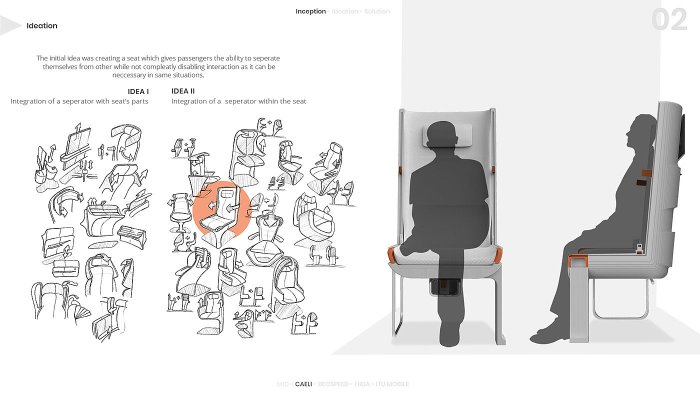Top Scholarships in Tier 1 Countries That Include Living Stipend
Top Scholarships in Tier 1 Countries That Include Living Stipend open doors to unparalleled educational opportunities across the globe. These scholarships not only alleviate the financial burden of tuition fees but also provide essential living stipends, allowing students to focus on their studies without the stress of financial constraints. Studying in Tier 1 countries is an enriching experience, offering world-class education, diverse cultures, and exceptional career prospects.
There are various types of scholarships available, ranging from merit-based to need-based programs, each tailored to support international students in their academic journey. With an increasing number of Tier 1 countries recognizing the value of global talent, the opportunities to secure scholarships with living stipends have never been more promising.
Introduction to Scholarships in Tier 1 Countries

Source: puxiang.com
Scholarships that include living stipends play a crucial role in making higher education accessible for international students. These financial aids not only cover tuition fees but also alleviate the burden of living expenses, allowing students to focus on their studies and cultural experiences. This support is particularly significant in Tier 1 countries, known for their high-quality education systems and vibrant learning environments.Studying in Tier 1 countries offers numerous benefits, including access to world-renowned universities, cutting-edge research facilities, and diverse academic communities.
Students are immersed in rich cultures, which fosters both personal and professional growth. The opportunity to network with peers and industry leaders enhances career prospects and broadens horizons.
Types of Scholarships Available Globally, Top Scholarships in Tier 1 Countries That Include Living Stipend
There is a wide range of scholarships available globally that cater to various student needs and backgrounds. Understanding these options can empower students to make informed decisions about their education.
- Merit-Based Scholarships: Awarded to students based on academic performance or other achievements, these scholarships recognize talent and encourage excellence.
- Need-Based Scholarships: These scholarships focus on students who demonstrate financial need. They aim to support those who might otherwise be unable to afford education abroad.
- Research and Teaching Assistantships: Offered by universities, these positions allow students to work while studying, providing financial assistance and valuable experience in their field.
- Government-Funded Scholarships: Many Tier 1 countries provide scholarships through government initiatives to attract international talent. Examples include the Fulbright Program in the U.S. and the Chevening Scholarships in the U.K.
- Private and Non-Profit Organization Scholarships: Various organizations offer scholarships to promote education and support students from specific demographics or regions.
The availability of these scholarships facilitates a more inclusive educational landscape, ensuring that talented individuals from diverse backgrounds can pursue their dreams in prestigious institutions around the globe.
Top Tier 1 Countries Offering Scholarships
Many Tier 1 countries are renowned for their exceptional scholarship programs, providing international students with ample opportunities to study while easing the financial burden. These scholarships often cover tuition fees, living expenses, and other costs, making them highly sought after. In this overview, we will explore some of the leading Tier 1 countries that offer these scholarships, backed by relevant statistics and the advantages of studying in each location.
Notable Tier 1 Countries with Scholarship Programs
A variety of Tier 1 countries host significant scholarship programs aimed at attracting international talent. Below are some of the top countries, along with pertinent statistics regarding their international student populations and the benefits they provide to students.
- United States: The U.S. is home to over 1 million international students, largely due to its prestigious universities and diverse programs. Scholarships such as the Fulbright Program and various university-specific scholarships offer substantial funding.
- United Kingdom: With approximately 450,000 international students, the UK provides scholarships like the Chevening Scholarships and Commonwealth Scholarships, which cover tuition and living expenses, enhancing the appeal of studying in historic and culturally rich environments.
- Canada: Canada hosts around 640,000 international students, benefiting from scholarship programs like the Vanier Canada Graduate Scholarships and Canadian Commonwealth Scholarship Program, which promote academic excellence and diversity.
- Australia: Approximately 500,000 international students choose Australia for their studies, attracted by scholarships such as the Australia Awards and university-specific grants that facilitate a high-quality educational experience.
- Germany: With over 350,000 international students, Germany offers scholarships through the DAAD (German Academic Exchange Service), which provides financial support to students in various fields of study, encouraging higher education without tuition fees at many institutions.
“Studying abroad not only enhances academic prowess but also offers exposure to diverse cultures and perspectives.”
The advantages of studying in these countries extend beyond financial support. Each offers a rich cultural experience, world-class education, and robust support systems for international students. From networking opportunities to post-graduate employment prospects, these Tier 1 destinations provide a comprehensive environment for personal and professional growth.
Types of Scholarships with Living Stipends
Many students aspiring to study abroad seek scholarships that not only cover tuition but also provide living stipends. These allowances significantly ease the financial burden of studying in a foreign country, making education more accessible. Scholarships with living stipends can vary widely, often depending on the type of scholarship awarded.The most common categories of scholarships with living stipends include merit-based scholarships, need-based scholarships, and those based on specific criteria such as nationality, field of study, or extracurricular achievements.
Each type has its own eligibility requirements and benefits that cater to different student needs.
Comparison of Scholarship Types
Understanding the differences between various types of scholarships can help prospective students choose the right one for their circumstances. Below is a comparison of common scholarship types that include living stipends, focusing on eligibility and benefits.
| Scholarship Type | Eligibility Criteria | Benefits |
|---|---|---|
| Merit-Based Scholarships | Academic excellence, outstanding achievements | Full tuition coverage, monthly living stipend, additional grants for specific expenses |
| Need-Based Scholarships | Financial need as demonstrated by income statements | Partial or full tuition coverage, monthly living stipend, support for housing, and travel expenses |
| Country-Specific Scholarships | Citizenship or residency requirements | Tuition coverage, living stipends, and cultural integration programs |
| Field of Study Scholarships | Enrollment in specific programs or majors | Tuition waivers, living allowances, and funding for research projects |
| Extracurricular Scholarships | Participation in sports, arts, or community service | Tuition assistance, monthly stipends, and funding for related activities |
Living stipends vary significantly across different scholarship programs. For instance, a merit-based scholarship might offer a higher monthly allowance compared to a need-based scholarship, which could be more focused on covering basic living expenses. Additionally, some scholarships may provide additional financial support for accommodation, transportation, or other necessary costs associated with living abroad. This variability allows students to find scholarships that not only fit their academic pursuits but also their financial needs and lifestyle preferences.
Application Process for Scholarships in Tier 1 Countries
Applying for scholarships in Tier 1 countries can be a structured yet competitive journey. Understanding the application process is crucial for prospective students as it enables them to present their best selves to scholarship committees. Each scholarship may have its unique requirements, but a few common steps and documents are generally needed across the board. The application process typically involves several key steps, each critical to securing funding for your education.
It is essential to follow these steps carefully to increase your chances of success.
Key Steps in the Application Process
Familiarizing yourself with the application steps can streamline the process and help avoid common pitfalls. Below is a detailed Artikel of the essential steps to take when applying for scholarships:
- Research Available Scholarships
- Understand Eligibility Criteria
- Prepare Required Documents
- Complete the Application Form
- Submit the Application Before the Deadline
- Prepare for Interviews
- Follow Up
The research phase is the foundation of your application. Identifying scholarships that align with your field of study and interests will help you focus your efforts. After identifying scholarships, understanding the eligibility criteria is vital to ensure that you qualify before investing time in the application.
Common Requirements and Documents Needed
Various scholarships will have their specific requirements, but there are some standard documents that most applications will ask for. Being prepared with these documents on hand can help reduce last-minute stress. Common documents typically include:
- Completed Scholarship Application Form
- Personal Statement or Essay
- Academic Transcripts
- Letters of Recommendation
- Proof of Language Proficiency
- Resume or Curriculum Vitae (CV)
A well-crafted personal statement is your opportunity to showcase your motivations and aspirations. Recommendations should ideally come from individuals who can speak to your character and academic abilities. Additionally, a resume highlights your extracurricular activities and work experiences, providing a holistic view of who you are as an applicant.
Checklist for Prospective Applicants
Having a checklist can significantly enhance your organization and ensure you do not overlook any critical steps. The following checklist Artikels the necessary actions to take during the application process:
- Identify targeted scholarships and their deadlines.
- Verify eligibility criteria for each scholarship.
- Gather necessary documents well in advance.
- Draft your personal statement and tailor it to each scholarship.
- Request letters of recommendation early.
- Review application guidelines thoroughly.
- Complete your application form with attention to detail.
- Submit your application before the deadline.
- Prepare for possible interviews or additional assessments.
- Follow up with the scholarship office after submission.
This checklist provides a comprehensive guide to keeping your application organized and timely, ultimately enhancing your chances of securing a scholarship in a Tier 1 country.
Notable Scholarships with Living Stipends

Source: com.cn
Many prestigious scholarships not only cover tuition fees but also provide living stipends to support students in Tier 1 countries. These scholarships can significantly ease the financial burden of studying abroad, allowing students to focus on their academic and professional goals without the distraction of financial stress. Below, we’ll explore some of the most notable scholarships available, highlight their coverage and benefits, and share success stories from recipients who have thrived under these programs.
Fulbright Program
The Fulbright Program is one of the most recognized scholarship opportunities available to international students wishing to study in the United States. This program, sponsored by the U.S. government, offers a comprehensive package that includes full tuition coverage, a monthly living stipend, and health insurance.
- Coverage: Tuition fees, living stipend, health insurance.
- Living Stipend: Varies by location; typically covers rent, food, and personal expenses.
“The Fulbright Program changed my life. It not only supported my education but also introduced me to a network of incredible individuals.”
Maria, Fulbright Scholar from Brazil.
Rhodes Scholarship
The Rhodes Scholarship is awarded to exceptional students from around the world to study at the University of Oxford in the UK. This prestigious scholarship covers tuition fees and provides a generous living stipend to ensure scholars can fully immerse themselves in their studies.
- Coverage: Tuition fees, accommodation, and a monthly allowance.
- Living Stipend: Adequate to cover living expenses in Oxford, including accommodation, meals, and travel.
“Being a Rhodes Scholar has opened so many doors for me, both academically and personally. The support was invaluable.”
James, Rhodes Scholar from Canada.
DAAD Scholarships
The German Academic Exchange Service (DAAD) offers scholarships for international students to study in Germany. Their programs often include full tuition coverage along with a substantial living stipend, enabling students to experience life in Germany fully.
- Coverage: Full tuition fees and living expenses.
- Living Stipend: Monthly allowance that covers rent, food, and other personal costs.
“The DAAD scholarship allowed me to pursue my master’s degree without financial worry. My experience in Germany was unforgettable.”
Anjali, DAAD Scholar from India.
Commonwealth Scholarships
The Commonwealth Scholarships are aimed at students from low and middle-income Commonwealth countries who would not otherwise be able to study in the UK. These scholarships provide tuition coverage and a living stipend, making UK education accessible to a wider audience.
- Coverage: Tuition fees and living costs.
- Living Stipend: Structured to support students in major UK cities where living costs are higher.
“Receiving the Commonwealth Scholarship was a pivotal moment in my life; it allowed me to achieve my dreams of studying in the UK.”
Kwame, Commonwealth Scholar from Ghana.
Chevening Scholarships
The Chevening Scholarships are the UK government’s global scholarship program, aimed at developing future leaders. These scholarships cover all living costs, tuition fees, and travel expenses, making them one of the most comprehensive scholarship options available.
- Coverage: Full tuition fees, airfare, and living expenses.
- Living Stipend: Generous monthly allowance to cover all necessary living costs.
“The Chevening Scholarship enabled me to study at a top university while living comfortably. It was an honor to represent my country.”
Amina, Chevening Scholar from Pakistan.
Tips for Securing Scholarships in Tier 1 Countries
Applying for scholarships in Tier 1 countries can be highly competitive. Therefore, it’s essential to adopt effective strategies that can strengthen your application and set you apart from other candidates. Understanding the nuances of the application process and preparing accordingly can significantly increase your chances of success.One key aspect of scholarship applications is the necessity of strong recommendation letters. These letters provide insight into your character, achievements, and potential from a third-party perspective.
Obtaining compelling recommendations can be instrumental in making your application stand out.
Strategies to Strengthen Your Scholarship Application
To enhance your scholarship application, consider the following strategies that can improve your likelihood of selection:
- Research the Scholarship Thoroughly: Understand the scholarship’s objectives, eligibility criteria, and values. Tailor your application to reflect these elements.
- Craft a Unique Personal Statement: Create a compelling narrative that highlights your academic journey, achievements, and aspirations. Make it personal and reflective of your passion.
- Maintain a Strong Academic Record: Good grades can be a significant factor in scholarship selection. Strive to achieve academic excellence throughout your studies.
- Engage in Extracurricular Activities: Participate in community service, clubs, or other activities that showcase your skills, leadership, and commitment to personal growth.
- Prepare for Interviews: If the scholarship requires an interview, practice common questions and develop articulate responses that reflect your personality and goals.
Importance of Recommendation Letters
Recommendation letters play a crucial role in your scholarship application. They provide credible endorsements of your abilities and character from individuals who know you well.
- Choose the Right Referees: Select individuals who are familiar with your work ethic, achievements, and character, such as professors, employers, or community leaders.
- Provide Useful Information: Share your resume, academic achievements, and specific details about the scholarship with your referees to help them write informed letters.
- Request Letters Early: Approach your referees well in advance of the application deadline to give them ample time to craft a thoughtful recommendation.
- Follow Up: Politely check in with your referees to ensure they have submitted their letters on time. A gentle reminder can be helpful.
Challenges Faced by Scholarship Applicants
Applying for scholarships in Tier 1 countries can be an intimidating process. There are numerous obstacles that potential candidates may encounter, ranging from understanding the eligibility criteria to compiling the necessary documentation. These challenges can often feel overwhelming, but with the right strategies and resources, applicants can navigate them successfully.One of the most common obstacles applicants face is the intense competition for scholarships.
Many Tier 1 universities receive thousands of applications, making it crucial for candidates to stand out. Additionally, cultural differences and varying application formats can pose significant hurdles for international students. The financial burden is another critical challenge, as many scholarships require applicants to demonstrate a level of financial need, which can involve complex documentation.
Common Obstacles in the Application Process
Understanding the specific challenges involved in the scholarship application process can empower applicants to address them proactively. Here are some prevalent issues along with strategies to overcome them:
- Intense Competition: The sheer number of applicants can be daunting. To stand out, candidates should focus on crafting a compelling personal statement that highlights unique experiences and accomplishments.
- Documentation Requirements: Different scholarships may have varying documentation needs. Keeping a checklist and meticulously organizing documents can simplify this process.
- Language Barriers: For non-native speakers, language proficiency can be a concern. Engaging in language courses or seeking assistance from fluent speakers can enhance communication skills.
- Financial Documentation: Proving financial need often requires detailed information. Applicants should prepare their financial documents early and consult with advisors if needed for clarity.
Strategies to Overcome Challenges
Effective strategies can significantly alleviate the stress associated with the scholarship application process. Here are some practical approaches:
- Research Thoroughly: Understanding each scholarship’s requirements and deadlines can help applicants avoid last-minute rushes.
- Seek Guidance: Utilizing mentors or advisors who have experience with scholarship applications can offer valuable insights.
- Practice Writing: Drafting and refining personal statements and essays multiple times can enhance clarity and impact.
- Connect with Others: Joining forums or social media groups dedicated to scholarship seekers can provide support and shared experiences.
Resources for Additional Support
There are numerous resources available to assist applicants in navigating the scholarship application process. These include:
- Online Platforms: Websites like scholarshipportal.com or fastweb.com can help find scholarships tailored to specific needs and qualifications.
- University Resources: Many universities offer dedicated financial aid offices that provide guidance and workshops on scholarship applications.
- Nonprofit Organizations: Organizations like the Fulbright Program or the Open Society Foundations provide mentoring and financial aid resources.
“Persistence is key; every obstacle overcome is a step closer to your dream scholarship.”
Financial Planning While Studying Abroad: Top Scholarships In Tier 1 Countries That Include Living Stipend

Source: puxiang.com
Studying abroad can be an exhilarating experience, offering the chance to immerse oneself in a new culture while pursuing academic goals. However, effective financial planning is essential to ensure that the scholarship funds, along with any living stipends, are utilized wisely. A well-structured budget can make a significant difference in managing day-to-day expenses and maximizing the benefits of a scholarship.To budget effectively when receiving a scholarship with a living stipend, students should first assess their overall financial picture.
This includes considering the scholarship amount, any additional income, and potential expenses. Creating a detailed budget helps to track spending and avoid unnecessary debt.
Additional Costs Encountered While Studying Abroad
While scholarships with living stipends provide substantial support, students may encounter various additional costs that can strain their finances. Understanding these potential expenses is key to effective budgeting. Some common additional costs include:
- Housing costs: Depending on the city and accommodation type, rent can vary significantly.
- Utilities: Monthly bills for electricity, water, and internet can add up.
- Transportation: Public transport, fuel for vehicles, or costs associated with owning a car need to be factored in.
- Health insurance: Many countries require international students to have health coverage, which can be a considerable expense.
- Course materials: Textbooks, software, and other required resources can be costly.
- Leisure activities: Dining out, entertainment, and sightseeing can quickly deplete funds if not monitored.
Understanding these additional costs helps students set realistic budgets and prepare for unforeseen expenses.
Strategies for Managing Finances and Maximizing Scholarship Benefits
To make the most of scholarship benefits, students should implement effective financial management strategies. These practices not only aid in budgeting but also enhance the overall study abroad experience.Consider the following strategies:
- Develop a Monthly Budget: List all income sources (including the scholarship) and anticipated expenses to manage cash flow effectively.
- Track Spending: Use budgeting apps or spreadsheets to monitor daily expenditures, ensuring alignment with the budget.
- Prioritize Needs vs. Wants: Differentiate between essential expenses (like rent and food) and discretionary spending (like entertainment), aiming to limit the latter.
- Seek Student Discounts: Take advantage of student IDs for discounts on transportation, dining, and cultural activities.
- Explore Part-Time Work: Check regulations for international students regarding part-time employment to supplement income.
- Cook at Home: Preparing meals can save significant money compared to dining out regularly.
By adopting these strategies, students can enhance their financial stability while studying abroad, ensuring they make the most of their scholarship and living stipend.
Conclusion
In summary, exploring Top Scholarships in Tier 1 Countries That Include Living Stipend reveals a wealth of options for aspiring students seeking financial aid to study abroad. By understanding the types of scholarships available, the application process, and tips for success, applicants can enhance their chances of securing the support they need. Embracing these opportunities can pave the way for a bright future filled with personal and professional growth.
Common Queries
What are Tier 1 countries?
Tier 1 countries typically refer to nations with highly developed economies, excellent educational systems, and a high quality of life, such as the USA, UK, Canada, Australia, and Germany.
How do I apply for scholarships that include living stipends?
To apply, you need to research specific scholarship programs, gather required documents, complete the application forms, and adhere to deadlines set by the scholarship providers.
Are living stipends enough to cover all expenses?
While living stipends can significantly help with living costs, students should budget carefully to ensure all expenses are covered, including housing, food, and transportation.
Can I apply for multiple scholarships?
Yes, you can apply for multiple scholarships, but make sure to check the eligibility criteria and application requirements for each.
What documents do I typically need for scholarship applications?
Common documents include academic transcripts, a resume, recommendation letters, a personal statement, and proof of language proficiency.









